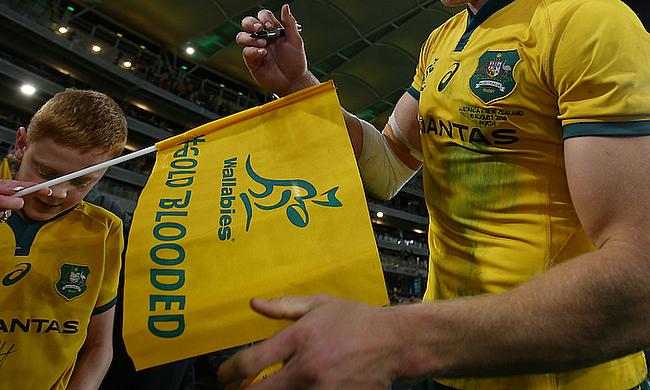Everyday is a Rugby Day: Australian players undertake University studies
How important is university education in the modern world? Many people would say it is as important as it has always been to obtain a degree.
However, it is hard to deny the fact that the world has changed in the 21st century. Currently, a diploma doesn’t seem to play such a critical role in a person’s life.
Not so long ago, an individual without a higher degree was unable to land a job and otherwise succeed in life. Today, we can see plenty of examples that prove this statement to be wrong. Steve Jobs, Bill Gates, Mark Zuckerberg - all these successful entrepreneurs have dropped out of university. There are many other figures to serve as an example.
Does this mean that you don’t really need to attend university to achieve something in your life? Although there are plenty of examples that prove the opposite, there are also people who state that education has a vital role in the success of an individual.
Whether this statement is true or not, and if higher education is as important as it has always been, the team of EssayPro has you covered. You can rely all your academic assignments in their trusted hands.
In this article, we are going to look at the examples of professional rugby athletes in Australia. They are committed to obtaining degrees even despite their brilliant current careers. Let’s dive in!
Australian Rugby Players Prove University Studies Are Still Important
When you are already a professional sportsman, why would you even need a degree, you may wonder? Apparently, Australian Rugby stars think differently. According to RUPA, 69% of professional Rugby players were enrolled in some courses across different institutions.
Almost 70% of players are undertaking studies across 20 institutions across the country. With about one in five of them coming from a Pasifika or Indigenous background. According to the report, this number includes both vocational studies and university courses.
Most athletes have chosen facilities that are members of the EAFU network. In 2018, the Queensland University of Technology has received eight applications from professional Rugby players. Both the University of Canberra and Griffith University (QLD) got seven new students.
Some of the other institutions chosen by sportsmen were:
-
Swinburne University (VIC);
-
University of New South Wales (UNSW);
-
The University of Southern Queensland (USQ);
-
The University of Sydney (which, by the way, is not an EAFU member unlike the others).
What are professional sportsmen studying? Interestingly, the majority of sportspeople who pursue a degree didn’t choose a sports-related field. Commerce and business are the areas where the biggest share of athletes have decided to get a degree. The next most popular courses are sports science and physical health.
How do they manage to combine their on-field endeavors with studies? In 2018, 31 players have enrolled in their first year of a course. Of course, most of them have decided to study part-time. This helps them make the sporting and academic load more manageable.
Although part-time study implies an easier load, it lengthens the time to graduation. However, it still makes sense if you think about the intensive sports season and the load it implies. It is barely possible to combine with anything else.
The players enrolled in the EAFU universities should have a less stressful time. There are 41 universities across the country that are members of this program. Their biggest commitment is support for elite athletes in pursuing a sporting career, and obtaining a degree.
The main goal of the program is to help athletes to pursue their degrees with ease. Each of 41 institutions offers students thorough support. They allow a certain level of flexibility for them to complete their courses while playing professionally.
RUPA also reports about two athletes who committed themselves to full-time study. Obviously, they must have a much more intense load. However, showing dedication and commitment, they must succeed in their endeavors.
There are also 45 players who have chosen to study by means other than university. These players are obtaining education through different online, distance, as well as face-to-face providers.
The choice of courses among these 45 athletes is quite varying. Some of the fields chosen by players are:
-
Aviation;
-
Fitness;
-
Language;
-
Real estate;
-
Acting;
-
Barista;
-
Marine operations.
To be frank, some of these choices may sound unusual for professional sportsmen. However, this doesn’t even matter as all it gets down to eventually is a personal choice and preference.
Why Do Australian Rugby Players Pursue Education?
Most Australian rugby players report loving undertaking their courses. They appreciate the opportunity to get a formal qualification or degree, while not giving up their careers.
Most students say they have enough flexibility and support to adjust their studies to an intense sporting schedule. This is great! However, why did they choose this path in the first place?
While many people may believe that once you enter the world of professional sports, you are doomed to succeed; players disagree. Surprisingly, the key trigger to pursue education reported by players themselves was the fact that a sporting career doesn’t last forever.
Here is what Allan Alaalatoa, a Brumbies and Wallabies star, and concurrently a Criminology & Criminal Justice student, says regarding this matter:
“Luckily for me, my parents always pushed me academically as they knew it was a lot harder for me than playing rugby was. I have always been told that rugby doesn’t last forever, and as I’ve been playing I have seen that first hand with some of my Brumbies and Wallabies teammates.”
“Having a degree will give me something tangible to lean on after footy.” “I also find that studying is really important in helping me to get away from rugby when I need to. Playing rugby for a living can get so intense! To have other meaningful things in life that keep me balanced and help me stay fresh is so beneficial.”
Another rugby star earning a diploma in early childhood - Charlotte Caslick, supports this idea:
“It is extremely important, considering professional rugby careers only last so long, to have something you’re working towards for the future.”
The Benefits of T & E Grants
Luckily for those athletes, who are not yet ready or can’t pursue a degree, there is one more opportunity available for them.
All professional rugby stars have a chance to win annual Training & Education reimbursement grants to cover their educational costs. Athletes can apply for a grant either while still having a valid contract or up to three years after they retire from sports.
Reimbursement grants can cover a variety of expenses associated with education. These expenses include costs of prescribed textbooks, tuition fees, required equipment, and so on.
In total, athletes can receive up to $5,000 a year. The grant is only provided if a student passes the courses or subjects they are undertaking. Also, for athletes who are on contract for 5+ years, there is a career cap amounting to $25,000.
T & E grants provide professional Rugby players with a unique opportunity, so it is something worth taking full advantage of.


